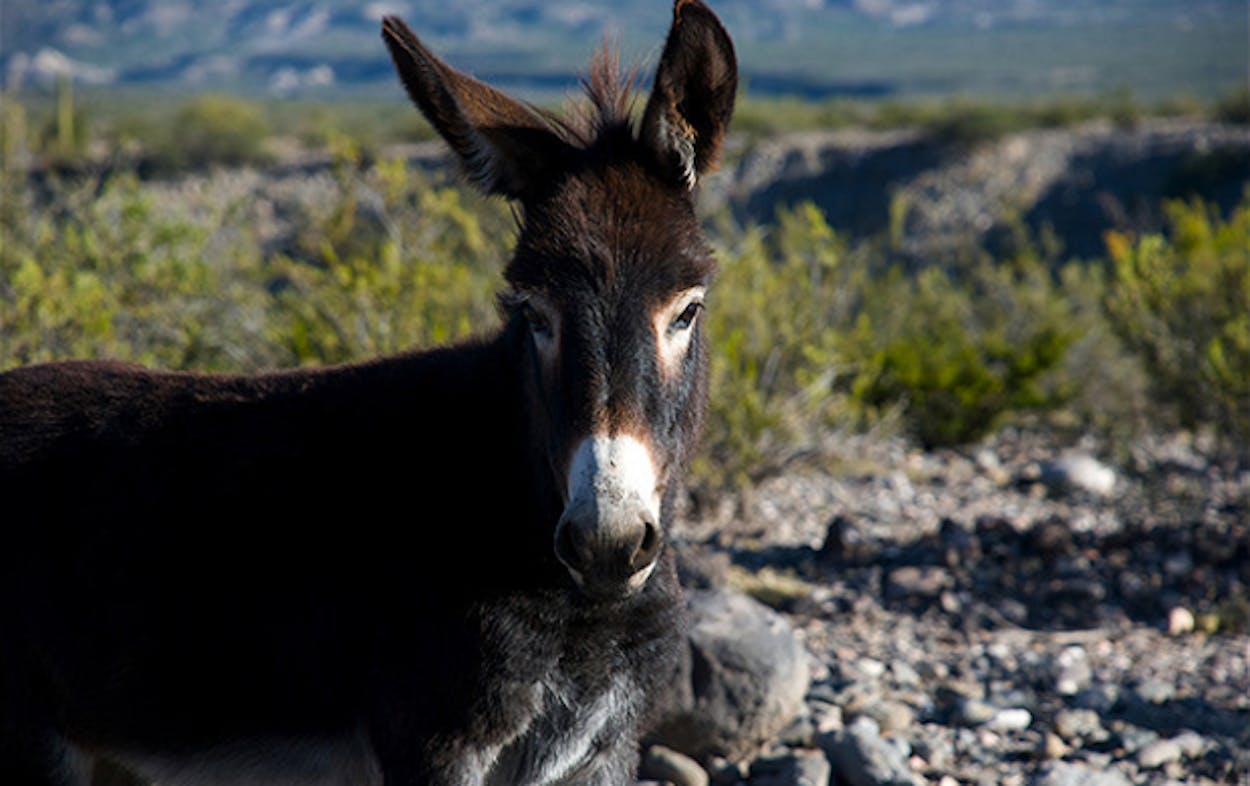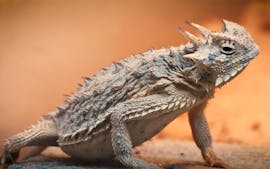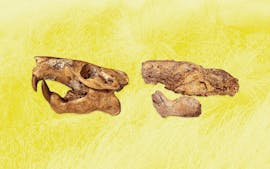The unhappy plight of the roving burros in Big Bend has attracted the notice of the San Antonio Express-News’ editorial board. Some three hundred feral donkeys roam the 300,000-acre state park and rangers have killed 130 of the border-crossing burros with their .308-caliber bolt-action rifles, the Associated Press reported late last month.
The editorial board called for an “indefinite moratorium on the sanctioned-slaughter of wild burros in Big Bend Ranch State Park.” The impact burros have on Big Bend’s environment should be studied before further action is taken, the board held.
Officials with the Texas Department of Parks and Wildlife hold that the thirsty beasts lap up valuable, scarce water and threaten native species. (Other mammals in the park include black bear, mountain lions, white-nosed coatis, mule deer, and javelina, according to the TPWD website.)
But members of the Wild Burro Protection League think the state is only concerned with bighorn sheep, which are prized by hunters and can fetch a pretty penny at auction. In 2007, park rangers killed 71 wild burros, sparking an outcry that stopped the practice until now.
This is the latest in a string of bad donkey news from around the state. Back in September, the San Antonio Express-News reported that the drought was leading people to abandon their jackasses in record numbers. Donkeys “have fewer uses than horses” but still require expensive feed during the drought. Peaceful Valley Donkey Rescue, which dubs itself “Our Nation’s Leading Donkey Rescue” and has a 260-acre ranch outside of San Angelo, has taken in some five hundred donkeys from throughout Texas since March. “This is unheard of,” Mark Meyers, director of Peaceful Valley, told the Express-News.
Writing in Unfair Park in October, Robert Wilonsky pointed out that Dallas County has also seen a glut of “estray” donkeys, and the cost of feeding and housing the beasts of burden is not offset by the paltry sum they bring in at auction—often only $5 to $15 an animal.







